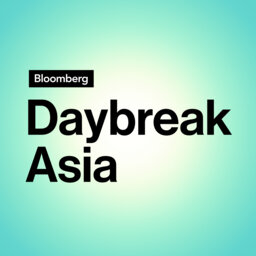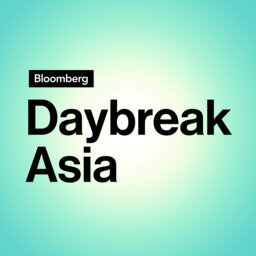Traders Look to Jackson Hole For Hint on Fed Direction
Featuring:
Frank Benzimra, Head of Asia Equity Strategy at Societe Generale
Steve Sosnick, Chief Strategist at Interactive Brokers
Pooja Malik, Partner at Nipun Capital
Brian Jacobsen, Chief Economist at Annex Wealth Management
Apple: https://podcasts.apple.com/us/podcast/bloomberg-daybreak-asia/id1663863437
Spotify: https://open.spotify.com/show/0Ccfge70zthAgVfm0NVw1b
TuneIn: https://tunein.com/podcasts/Asian-Talk/Bloomberg-Daybreak-Asia-Edition-p247557/?lang=es-es
In 1 playlist(s)
Bloomberg Daybreak: Asia Edition
Join Bloomberg Daybreak Asia for business and finance news centered in the Asia-Pacific region, alon…Social links
Follow podcast
Recent clips

Apple Record Earnings, Traders Weigh Big Tech, Fed Chair Pick Countdown
17:43

Traders Assess Tech Earnings, Fed Outlook
21:06

Dollar Weakens After Trump Comments, Mag Seven Earnings Preview
21:02
 Bloomberg Daybreak: Asia Edition
Bloomberg Daybreak: Asia Edition